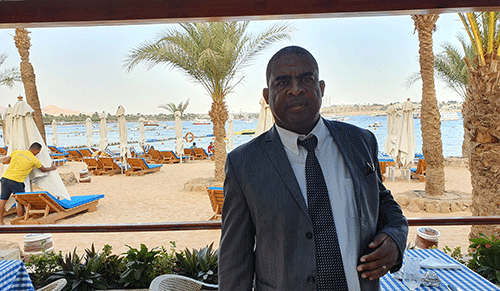The appointment of Ambassador Selma Ashipala-Musavyi is commendable.
She brings a wealth of experience in the world of diplomacy, while Namibia focuses on advancing its global economic attractiveness.
It is worth noting the progressive strides taken by Namibia’s newly-inaugurated President Netumbo Nandi-Ndaitwah.
Her decision to merge the ministries of international relations and cooperation with trade promotes the intensification of economic diplomacy. Namibia’s trade and investment policy should position the country in the global economy to attract the world’s multi-polar capital, owing to its advantage of ensuring peace and stability, as well as providing a stable and conducive environment since independence.
This marks Namibia as a protected destination for business. To achieve these objectives, the President needs to appoint ambassadors and high commissioners with proven entrepreneurial track records and business acumen, along with deliberate instructions to advance growth in trade services and the digitalisation of trade to strike a balanced approach.
This segment of investor attraction should not only focus on the African Continental Free Trade Area (AfCFTA), but also broaden to include service-based economies that could unlock free trade agreements (FTAs).
These agreements need to encompass regulations and standards, which pose challenges, given that the United States (US), China, European Union (EU) and others have differing legal and regulatory systems.
This issue was highlighted recently by threats to increase import tariffs from the US, reciprocated by the EU community in a state of retaliation. This leads to the need to consider opening the much-anticipated diplomatic mission in the United Arab Emirates (UAE), which is earmarked for positioning in Abu Dhabi or Dubai.
The Middle East, without a doubt, serves as the current economic engine of the world. Hence, the commendable initiative by President Nandi- Ndaitwah propels the need to revive the national flagship airline to facilitate direct long-haul routes to transport investors and tourists alike to those booming world economies and destinations.
Namibia should carefully consider the best available options in global aviation, and choose a lease-to-own term to avoid repeating the issues seen with the former Air Namibia fiasco. Under the flexible “wet and dry lease-to-own” terms, the aircraft will be fully-owned by the government.
The aviation market can cater to different operational requirements that primarily do not necessitate governments institutionalising the operations of such airlines. The Namibian government could rely on comprehensive training for pilots, crew, ground staff, management personnel and securing international licences to effectively control the airline at the expiry of the operational contract agreement.
Nandi-Ndaitwah’s determination to create more jobs should encourage Namibia’s economic policies to consider the effects of wages and employment by conducting a distributional assessment in every proposed trade agreement with potential investors.The Ministry of Information and Communication Technology could also play an instrumental role in attracting investment from abroad by intensifying and expanding marketing tools to cross international boundaries and effectively market the country’s trade potential.
Without such essential tools as technology, information and communication, there would be limits to what foreign economic policies can achieve. Government cannot sell abroad what it does not possess in abundance.
The appeal of a country as a global trading partner or a favourable place to do business is significantly related to its governance, institutions, culture and values.
It is not merely about negotiating trade and investment agreements but also projecting the values that characterise a society.
The reform and alignment of certain ministries to avoid duplication was a positive step. However, these institutions have been enlarged to unprecedented proportions.
They should warrant reinforcement and inclusion of more human resources and expertise to make the ‘new model’ more effective and efficient.
Otherwise, the political principals (ministers) designated to impress a turnaround focusing on job creation will fail the test and lead to unproductivity.
Namibia’s embassies or their diplomatic principals have not performed to the best of their abilities. Therefore, the deployment of diplomats should focus on confronting the challenges posed by the new world order, particularly as economic superpowers increasingly clash and the international economic order calls for reform, necessitating new roles for global engagement.
Nandi-Ndaitwah’s judgment and selection of candidates to achieve a well-thought-out approach for accelerating economic diplomacy will rely heavily on her decision regarding the calibre of secondments to various kingdoms around the world.
Dispatching inexperienced cadres who have just graduated from a one-year diplomatic tutorial exercise at Unam to countries such as the United Kingdom (UK), the USA or Russia should not be considered.
This could undermine global diplomatic protocols, and insult the world’s economic superpowers. While it is important to groom and empower the youth, the goals set for achieving economic diplomacy could be thwarted by sending such candidates to learn “on duty” in foreign lands.
The world is a global village.
Namibia certainly belongs to that community, and should not feel excluded.
*Engel Nawatiseb has extensive knowledge in global commercial consultancy. He has served as the founding deputy minister of public enterprises as well as information and communication technology in the Namibian government.


